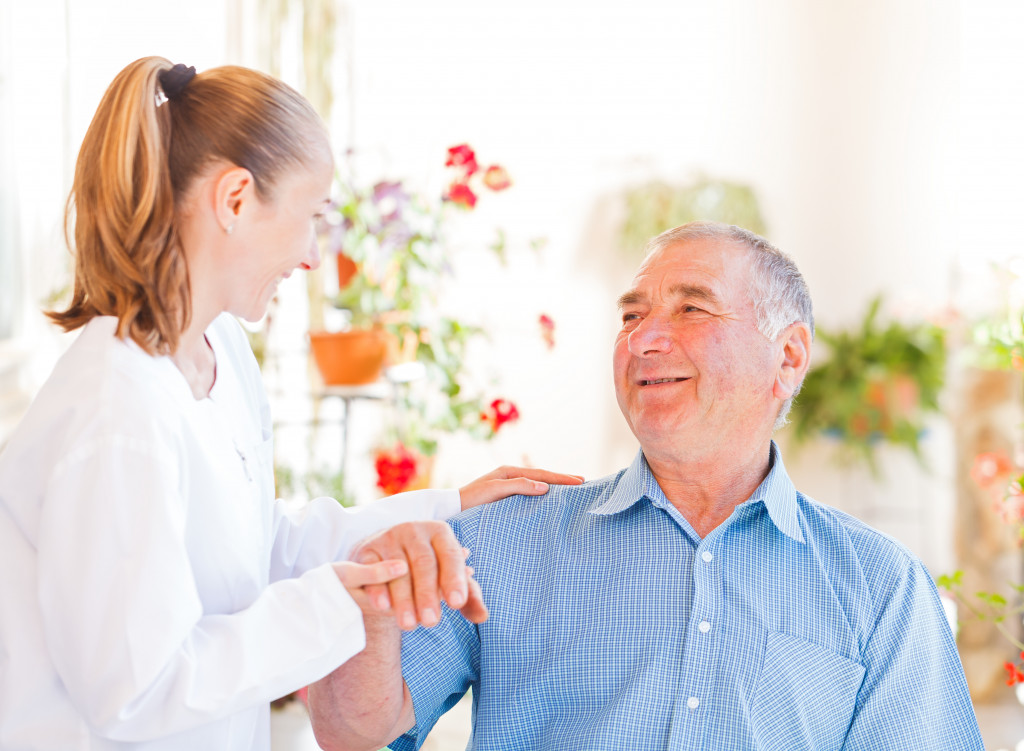As we age, our mental health can start to decline. This can result from hormonal changes, medical conditions such as dementia, or lifestyle choices. Seniors often experience social isolation due to increased physical limitations, loss of loved ones, and other age-related changes. This can lead to depression, anxiety, and other mental health issues.
It is essential to take steps to ensure that seniors can maintain their mental health and well-being as they get older. Here are some tips on how you can help your elderly loved ones stay mentally healthy.
Stay Active
Exercise is one of the best ways to keep your mind sharp, and your mood elevated. Staying physically active can help reduce stress levels and improve overall physical health, which in turn helps with mental health.
For seniors who may not be able to do strenuous exercise, walking or even chair exercises are great alternatives. Encourage them to find activities they enjoy doing and ensure they have access to the equipment or resources needed for those activities.
Explore Assisted Living Facilities
One of the best ways for seniors to maintain strong mental health is to explore assisted living facilities. These facilities create a safe, supportive community for those aging individuals who are beginning to struggle with daily activities because of age-related issues. Assisted living facilities typically provide various services to help seniors live comfortably and happily.
Moreover, they host a wide selection of activities, which helps keep seniors active and engaged both physically and mentally. Before choosing an assisted living facility, it’s beneficial to speak with people who have already moved and research the facility itself. With appropriate due diligence and exploration, assisted living has the potential to be one of the most fulfilling experiences later in life.
Maintain Connections

Social interaction is an integral part of life at any age, but it becomes increasingly important as we age since loneliness can hurt mental health. Make sure that your elderly loved ones stay connected with family and friends through phone calls, video calls, or socially distanced visits, if possible.
If they do not have a large social circle already established, there are online programs and communities designed specifically for seniors to stay connected with others their age while participating in various activities such as book clubs or virtual classes.
Stay Engaged
Keeping the mind active is another great way to maintain good mental health. Encourage seniors to challenge themselves by learning something new or engaging in stimulating activities such as puzzles or games like Sudoku, which helps keep their minds sharp and alert. Reading is also an excellent way for them to stay engaged and informed about current events, so make sure they have access to books that interest them.
Seek Professional Help
When it comes to senior mental health, many different types of professionals can provide support and assistance. These include psychiatrists, psychologists, counselors, and social workers. These professionals specialize in different areas and have unique qualifications and expertise in various forms of mental health treatment.
Psychiatrists are medical doctors who specialize in diagnosing and treating mental illnesses with medication or other forms of therapy. Psychologists focus on helping patients understand their thoughts and behavior while providing psychological testing and assessment services.
Counselors work with clients on various issues, including stress management, depression, addiction, relationship problems, and more. Social workers help seniors find community resources that may be able to assist them with any mental health concerns they might have.
Focus on Self-Care
One of the best ways to strengthen mental health for seniors is self-care. Encouraging strong self-care habits for our elderly loved ones can enable them to remain connected to what matters around them. These habits include getting enough sleep, exercising regularly, cultivating a sense of purpose and meaning in their life, avoiding drugs and alcohol, developing close relationships with friends and family members as well as participating in hobbies they are passionate about.
Furthermore, if the senior has been prescribed medication by a doctor or therapist, it should be taken exactly as instructed. If any potential side effects arise, speak with a healthcare professional immediately. Self-care must always be observed while helping seniors have robust mental health and can serve as their primary support system throughout their lives.
Final thoughts
Mental health is an integral part of overall well-being for everyone, especially for seniors whose bodies may be going through more changes than younger people. We must ensure that our elderly loved ones remain mentally healthy by staying active, maintaining connections with family and friends, and engaging in activities that stimulate their minds, such as reading, puzzles, or games. All of these things will help them stay strong both mentally and physically throughout the aging process, so we must prioritize their mental health!
